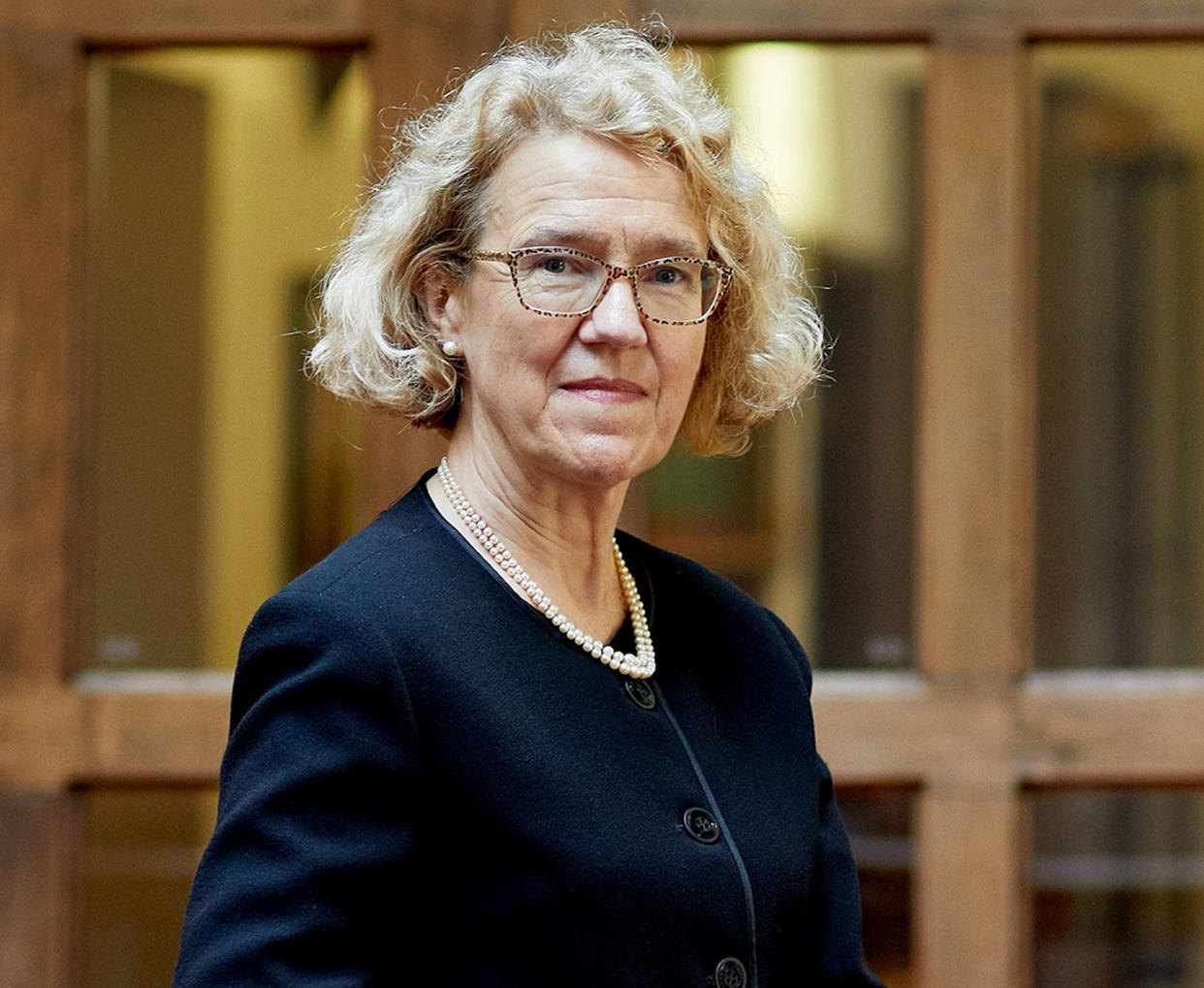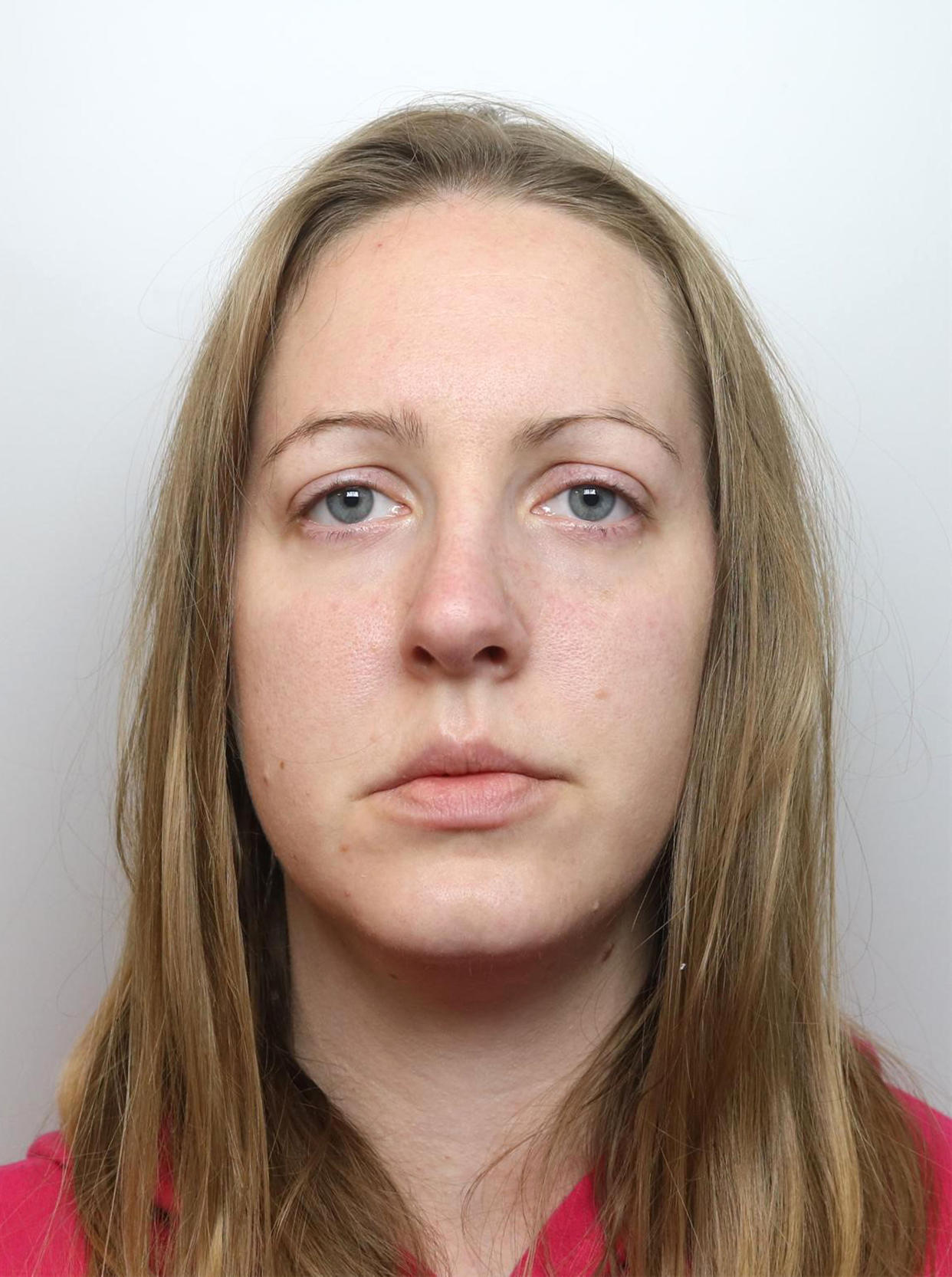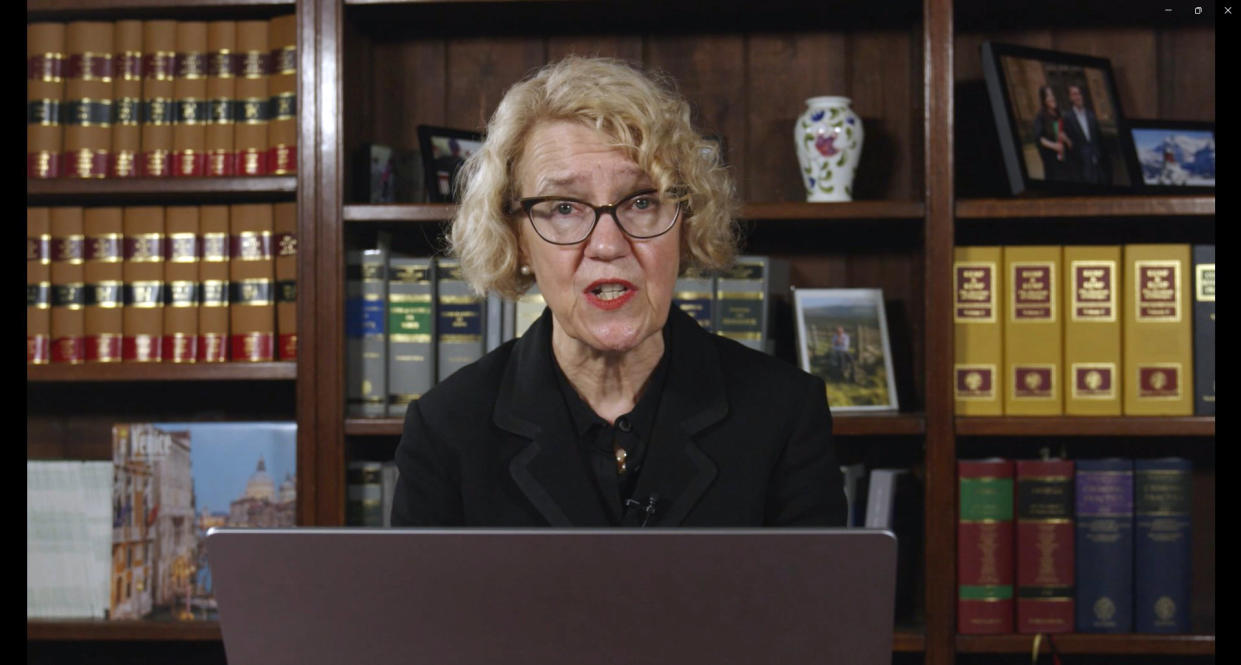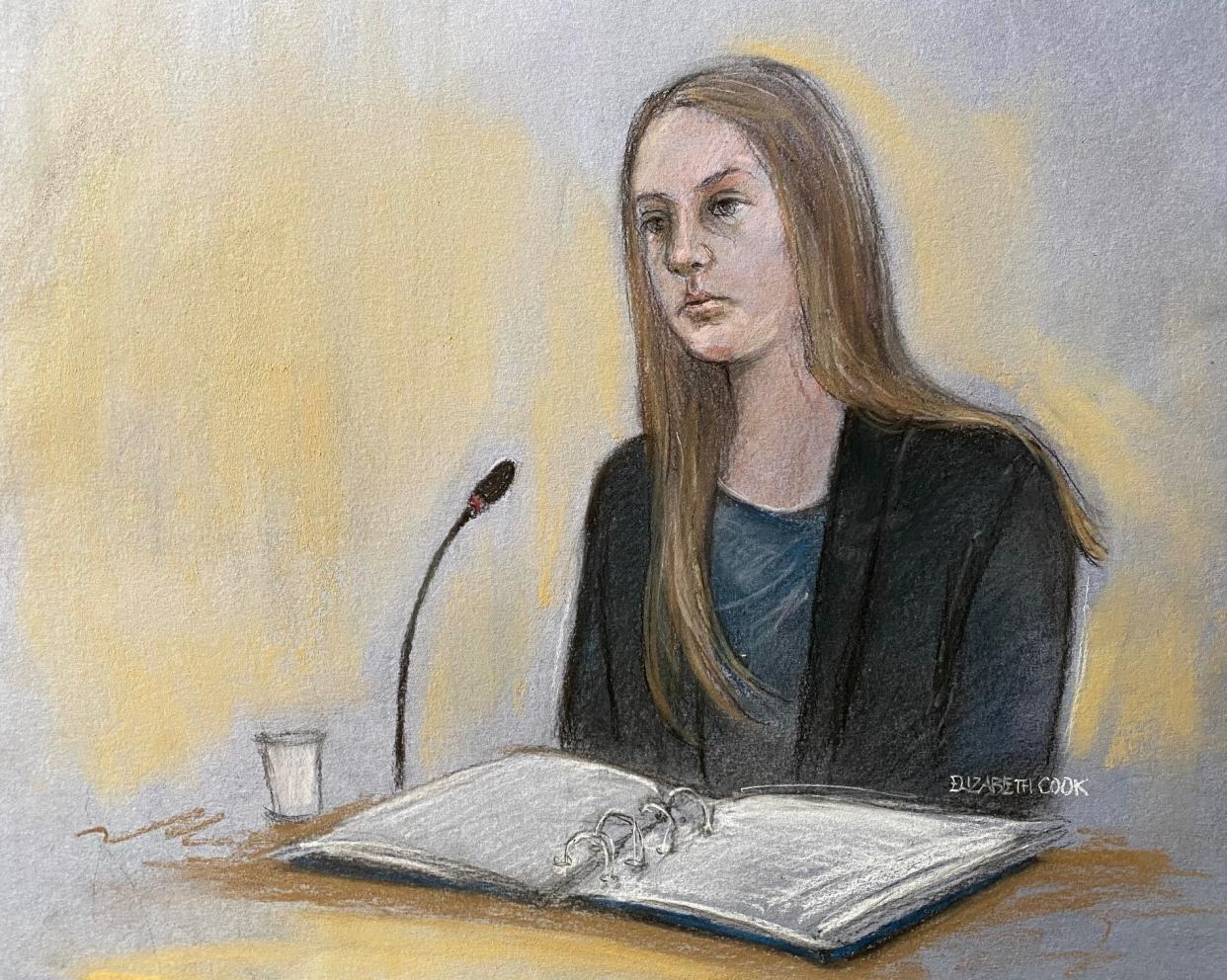Who is Lady Justice Thirlwall, the judge in charge of the Lucy Letby inquiry?

An inquiry into the crimes of serial killer nurse Lucy Letby is set to begin in September.
Letby was convicted of the murders of seven babies and the attempted murders of seven others at the Countess of Chester Hospital’s neonatal unit, where she worked, between June 2015 and June 2016.
She was sentenced to 15 whole-life orders, making her only the fourth woman in UK history to be told she will never be released from prison.
The inquiry into the events was announced in August last year, following the verdicts in Letby’s first trial, and will be led by one of the country’s most senior judges, Lady Justice Thirlwall.

Here, Yahoo News UK sets out Lady Justice Thirlwall's background, what the inquiry will cover and why she decided not to livestream it.
Who is Lady Justice Thirlwall?
Kate Thirlwall is a senior Court of Appeal judge who was appointed as inquiry chair in September last year.
Then-health secretary Steve Barclay said: “She is one of the country’s most senior judges, currently sitting in the Court of Appeal, and with many years of experience as a senior judge and a senior barrister before that.”

In her opening statement as chair of the inquiry in November last year, she said: "I will do all I can to make sure that no one else suffers as they [the parents of Letby's victims] have. It is unconscionable that this situation would ever occur again."
She was called to the bar in 1982 and became a barrister in 1999. She was appointed as a High Court Judge in 2010 and assigned to the Queen’s Bench Division. In 2016 she was appointed to the Sentencing Council before being appointed a Lady Justice of the Court of Appeal a year later.
She served as Senior Presiding Judge for England and Wales from January 2020 until September 2021.
Past court cases she has presided over include the 2013 case of Mick and Mairead Philpott and Paul Mosley, who plotted to set fire to a house in Derby, leading to the deaths of six children aged between five and 13. Passing sentence, Justice Thirlwall described Mick Philpott as the "driving force" behind the "shockingly dangerous enterprise".
What is the Lucy Letby inquiry?
The inquiry has been set up to "examine events at the Countess of Chester Hospital and their implications" and will be split into three key strands.
The first is about the experience of the parents of the babies at the hospital.
The second part will consider the conduct of people working at the hospital and how Letby was able repeatedly to kill and harm babies on the neonatal unit.
Watch: Video shows moment Lucy Letby is arrested on suspicion of murder
The third will look at the wider NHS, examining relationships between different groups of professionals, the culture within its hospitals and how these affect the safety of newborns in neonatal units.
Taking place at Liverpool Town Hall, it will start on 10 September and oral evidence will be heard until December.
Upon completion, it will be Lady Justice Thirlwall who makes recommendations to the government "as she considers appropriate".
Why is the inquiry not being livestreamed to the public?
In May, Lady Justice Thirlwall said the proceedings would not be broadcast live - as has been the case in, for example, the Post Office Horizon IT Inquiry - because of the risk of breaching court orders which prevent the identification of a number of people involved, including all of the babies.
It came after lawyers for some of the victims' families had argued the inquiry should be livestreamed to the public to prevent the spread of “grossly offensive” conspiracy theories.
At the hearing, Peter Skelton had told Lady Justice Thirlwall that "Lucy Letby's crimes, in particular, continue to be the subject of such conspiracies, some of which are grossly offensive and distressing for the families of her victims... one of the most effective antidotes to those theories and the damage that they cause will be to see and to hear the people [giving evidence]".
A lawyer representing some of the other families, Richard Baker, argued that a "conspiracy theory in any case is a peculiar and toxic weed that grows in shadows and the more light that we put on this inquiry, the less space there is for speculation and conspiracy" and that not broadcasting the inquiry would "hand a message to conspiracy theorists that there is something different about this case and that there is something to be hidden".

Lady Justice Thirlwall appeared to reject this line of thinking, saying: "It's slightly curious... that the process and procedures of a public inquiry should be affected by conspiracy theorists who, as you say, are toxic and ill-informed."
Two weeks later, in her final ruling preventing livestreams, she said: “I do not accept [potential identification of parents] is a risk the inquiry should take. Not only is there a significant risk to the inquiry itself, I take account of the human cost of a breach.
“For a parent, who has already suffered so much, to be identified online is unthinkable.”
Of conspiracy theorists, she added: "Searching for truth is not a characteristic of conspiracy theorists. Like those who promulgate fake news, they search for information which supports their world view. When they find none, they manufacture it, often using and distorting video footage to be found on the internet.”


